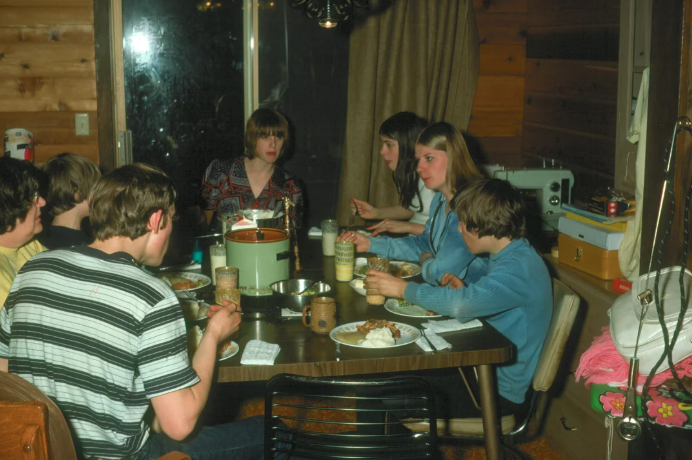My wife Keri and I went in for the standard 19-week anatomy scan of our second child. As a parent, you think that appointment is all about finding out boy or girl, but it’s about a whole lot more.
In our case, our daughter was diagnosed with a rare birth defect called anencephaly — some 3 in 10,000 pregnancies rare. The phrase our doctor used in explaining it was “incompatible with life,” which looks as terrible in words as it sounds. The child fails to develop the frontal lobe of the brain or the top of their skull. The chance of survival is 0%. We sat in a doctor’s office, five months before our daughter was to be born, knowing she would die.
The options weren’t great. There was (a) inducing early, which in effect was terminating the pregnancy or (b) continuing the pregnancy to full term.
Within a minute or so of finding out, Keri asked if we could donate the baby’s organs if we went to full term. It was on her heart and mind, but we left the doctor and still spent the next 48 hours deciding what we were going to do. It was excruciating. We considered terminating. We had to. Were we capable of taking on the weight of the 20 weeks ahead? In our minds, we were intentionally taking on the loss of a child, rather than the loss of a pregnancy. And, yes, there is a difference.
We decided to continue, and we chose the name Eva for our girl, which means “giver of life.”
The mission was simple: get Eva to full term, welcome her into this world to die, and let her give the gift of life to some other hurting family.
It was a practical approach, with an objective for an already settled ending point. We met with an organ procurement organization called LifeShare of Oklahoma and found out we’d be the eighth family in the state to donate the organs of an infant.
There wasn’t much of a precedent or process in place because, until only recently, most parents of anencephalic babies didn’t know it was an option. There’s this weird gray area involved because, even without a brain, these babies can’t be declared brain dead. Her heart would need to stop beating, leaving a finite window of, let’s call it, “opportunity,” to recover her kidneys, liver, and maybe pancreas and heart valves. We asked about other things, like her eyes or corneas, but LifeShare told us they’d never done that before, even with an adult.
Part of the difficulty of the decision to carry on was the physical pregnancy and the mental burden of carrying a baby for 20 more weeks knowing she would die. The kicks and punches to Keri’s bladder served as a constant reminder of what was inside. (Yes, Eva kicked like any other baby; her brainstem was complete, which is what controls basic motor functions. I know, we had a hard time wrapping our minds around it too.) She feared people asking what she was having or the due date or if the nursery was ready.
What we unexpectedly found, though, was joy in the pregnancy. We happily talked about our sweet Eva, and day by day, our love for her grew. We got excited to be her parents.
I think a big part of that was connected to the decision we made to continue on, which was empowering. She had a name, an identity, and a purpose. The idea of choice in pregnancy is a complicated one, and one I kind of want to avoid here. Wherever you fall, just know, we were empowered by our decision, our responsibility to be Eva’s mom and dad for as long as we could. We went from seeing the pregnancy as a vehicle to help others to looking forward to holding her, kissing her, telling her about her brother, and being her parents.
The time we’d have was completely unknown, with it ranging anywhere from five seconds to five minutes to five hours to, in some more optimistic estimates, five days.
We decided to have a planned C-section. We wanted to maximize our chances of seeing Eva alive and be able to control as many variables as possible.
There wouldn’t be any surprise labor in the middle of the night. We could have our first child Harrison there to meet his sister and grandparents ready to hold their granddaughter even if she was only alive for an hour or so. We wanted to do what was best for our girl. That’s what parents do.
As the date neared, the meetings and appointments cranked up. We had what everyone called the “Big Meeting,” a gathering at Baptist Hospital of about 30 people that included multiple people from LifeShare, NICU nurses and doctors, neonatologists, and other “Very Important Hospital People.” We were the first infant organ donor ever at Baptist, and they were developing a protocol on the fly. There were plans and contingency plans and contingency plans for the contingency plans.
The process was going to be delicate, and to be frank, it seemed increasingly unlikely that it would work. There were a lot of things that were going to need to go just right, even with the intricate plans that were being put in place. It was made clear to us over and over and over again how if Eva’s kidneys or liver didn’t go directly for transplant, they would go to research, and infant organ research is incredibly valuable.
But I wanted a tangible outcome. I wanted to be able to meet and hug and shake the hand of the person my daughter saved.
I couldn’t dream about what my daughter would grow up to be, so I fantasized about the difference she could make.
What if the person who got her kidneys became president? What if her liver went to a little boy and he goes on to win the Heisman Trophy? I was writing the “30 for 30” script in my mind every night as I went to sleep. It was something to hold onto; it was the kind of hope I wrapped up with both arms. Research was nothing more than a fail-safe to me, a Plan B that I didn’t want any part of.
There were some concerns from the hospital’s ethics team about Eva and our plans. As I explained to them — and to anyone else out there who has this idea that we grew a daughter just for her organs — Eva was a terminal child. And as her parents, we elected to make her an organ donor. That’s it. She would be born, live an indefinite amount of time, and then we were choosing to donate her organs.
Then suddenly, we were in the two-week window. In two weeks, we’d be prepping to welcome our baby girl into the world and preparing to say goodbye to her.
I planned on sitting down that day to write Eva a letter, like I did before Harrison was born to give him on his 18th birthday. She’d never read it, but I was going to read it to her. Keri didn’t feel Eva move much that morning, but we both brushed it off and went to lunch. We came home, put Harrison down for a nap, and Keri sat down in her favorite spot and prodded Eva to move. She wouldn’t.
We started to worry. Keri got up, walked around, drank cold water, ate some sugary stuff. She sat back down and waited. Maybe that was something? We decided to go to the hospital. We held on to hope that we were just being overly anxious and didn’t take any bags.
We arrived, and a nurse looked for a heartbeat on the doppler: nothing. Not unusual; it was sometimes hard to find because of the extra fluid. They brought in a bedside ultrasound machine and looked. It seemed that maybe there was a flicker of cardiac activity. They told us to get ready to rush in for a C-section.
I just remember repeating, “I’m not ready I’m not ready I’m not ready I’m not ready.” I was supposed to have two more weeks. What about the plan? What about Harrison? What about Eva’s aunts and uncles and grandparents? What if they couldn’t make it in time? What about her letter?
They brought in a better ultrasound machine. Keri and I had seen enough ultrasounds to immediately know: There was no heartbeat. Eva was gone before we ever got to meet her. The brain controls steady heart functions, and Eva’s finally gave out.
Keri rolled onto her side and put both hands over her face and let out one of those raw, visceral sobbing bursts. I stood silently shaking my head.
We had tried to do everything right, tried to think of others, tried to take every possible step to make this work, and it didn’t. No organ donation. Not even for research, our fail-safe. We felt cheated.
The word I still have circling in my head is disappointment. That doesn’t really do it justice because it’s profound disappointment. The kind of disappointment that will sneak up on me at different times, like when I’m mowing the yard or rocking Harrison or driving to a game.
Since there was no reason to control variables anymore, the doctors induced Keri into labor. The rest of Sunday and into Monday morning were the darkest, most painful hours of our lives. We had previously come to terms with the outcome and had almost found a joy in the purpose of our daughter’s life. We had looked forward to meeting her and loving her. We knew we’d hurt from her loss, but there was hope in the difference she was making. We had heard from recipients of organ donation that were so encouraging and uplifting.
But the deal got altered. It felt like we were letting everyone down. (I know how ridiculous that sounds.) I felt embarrassed because all that positivity about saving lives wasn’t happening now. (I know how ridiculous that sounds.)
On top of it all, the ultimate kick in the gut: We wouldn’t even see her alive. I struggled with the idea of Eva’s existence and her humanity all along, about whether a terminal diagnosis made her dead already. I clung to knowing her humanity would be validated to me when I saw her as a living, breathing human being. I wanted to watch her die because that would mean I got to watch her live. I longed for just five minutes with her — heck, five seconds with her. All of that practical stuff about organ donation was irrelevant to me now. I just wanted to hold my baby girl and see her chest move up and down. I just wanted to be her daddy, if only for a few seconds.
Eva came surprisingly quick on Monday. Keri forced me to go get some lunch — a sad, lonely lunch featuring me taking bites of chicken fingers in between sobs — and I got back to the hospital around noon. Keri sat up and felt some pain. Then she felt another shot of pain ring through her body. Our photographer had just arrived and was setting up. Keri started to panic and asked for nurses to come in. They checked her, and it was time to have a baby. I still wasn’t ready.
At 12:20 we called our family and told them to hurry.
At 12:30, our doctor, Dr. Pinard, arrived.
At 12:33 and 12:35, Laurie from LifeShare tried calling Keri.
At 12:37, Eva Grace Young was born. I cut her umbilical cord at 12:38.
My phone rang at 12:40 and 12:41, and then a text came. It was Laurie from LifeShare. “Hey Royce, it’s Laurie . Will you give me a call when you get a chance? I think I have some good news for you.”
Keri and I held each other and cried as the nurses cleaned Eva, and Dr. Pinard called LifeShare for us.
Then, she walked up to the foot of the bed.
“I’m on the phone with LifeShare,” Dr. Pinard said, a smile cracking through on her face. “They have a recipient for Eva’s eyes.”
It’s weird to say that during probably the worst experience of my life was also maybe the best moment of my life, but I think it was the best moment of my life.
The timing of it all is just something I can’t explain. It wasn’t what we planned or hoped for, but it was everything we needed in that moment. I buried my head in my arms and sobbed harder than I ever have. Keri put her hands over her face and did the same. Happy tears.
As the nurses handed her to us for the first time, much of the dread and fear was lifted from us and replaced with hope and joy again. Here comes Eva Grace Young, the superhero she was always meant to be.
None of it went as we planned. We’re trying to rest on knowing we did the best we could. We always said we wanted to limit our regret, and I think in 20 years or so, as we reflect on this, there’s not much we’d change.
We’re proud to be Eva’s parents. We’re thrilled with the impact she’s made. People from around the world have sent us messages telling us they’ve signed up to be organ donors because of Eva.
Eva’s the first ever — not baby, but person — in the state of Oklahoma to donate a whole eye, and she donated two.
Because of her, LifeShare has made connections in other states to set up eye transplants for the future. They have an infant organ donation plan they now are working with sharing with other organ procurement organizations in Colorado and Texas. They call it the Eva Protocol.
I keep thinking about looking into her eyes some day, but more than anything, I think about her eyes seeing her mom, dad, and brother.
We always wondered things about Eva, like what color her hair would be, if she’d have Harrison’s nose, if she’d have dimples like her mama, or what color her eyes would be. In the time we spent with her, one eye was just a little bit open, and I fought the temptation to peek. I can’t ever hold my daughter again. I can’t ever talk to her or hear her giggle. But I can dream about looking into her eyes for the first time one day and finding out what color they are.
This story first appeared on the author’s Medium and is reprinted here with permission.



































